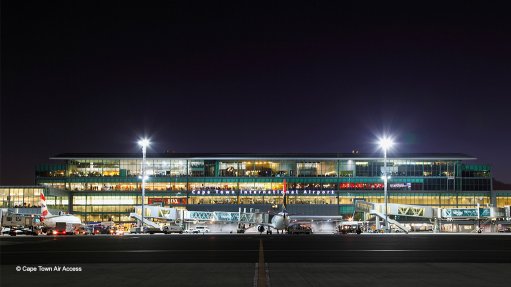CPI + 7%
I’ll have what she’s having” is from the memorable restaurant scene in the 1989 comedy, When Harry Met Sally. I was reminded of this when reading a May 20 release from the South African Revenue Service (Sars) titled ‘Media statement on negotiations between Sars and organised labour’.
As stated in the release, Sars met with organised labour, represented by the National Education, Health and Allied Workers Union and the Public Servants Association of South Africa to try to resolve issues which had prompted the unions to declare a dispute concerning the ongoing wage negotiations. The Sars delegation’s position is that the unions’ demand for a salary increase of CPI + 7% is “not affordable”. According to Sars’ 2020/21 annual report, the service has a headcount of 12 479, while, on April 20, Businesstech published an article headlined ‘Sars paid 60 people R1-million salaries to sit at their desks and do nothing – tax boss’.
Let’s, for a moment, ponder CPI, which stands for Consumer Price Index. It is the official measure of inflation in South Africa. According to Statistics South Africa (Stats SA), CPI stood at 5.9% in April. Inflation is defined as a decrease in the purchasing power of money, which is reflected in a general increase in the prices of goods and services in an economy.
So, the trade unions are demanding a 12.9% salary increase for Sars staff; in other words, government officials – this in a country which had real gross domestic product (GDP) growth of 4.9% in 2021. The definition of real GDP is the value of the goods and services produced by an economy in a specific period, adjusted for inflation.
I have always been amazed that, in South Africa, government officials’ salary increases are not commensurate with increases in their productivity. Are the officials’ productivity even measurable? Isn’t there an adage that, if you cannot measure it, you cannot manage it?
For the sake of clarity, productivity is the ratio between the output volume and the volume of inputs. According to the Organisation for Economic Cooperation and Development, productivity measures how efficiently production inputs, such as labour and capital, are being used in an economy to produce a given level of output.
In case you are still pondering if it is possible to measure government officials’ productivity – this has been done in Finland, for one. According to a Statistics Finland study, ‘Measuring Public-Sector Productivity in Finland’: “Productivity can be measured in a number of ways. Public-sector productivity is most often measured as labour productivity. In addition to labour productivity, multifactor productivity should also be measured.” Why does the South African government not measure its officials’ productivity? Surely, this could assist it in wage negotiations with trade unions.
The real question concerning the dispute at Sars should be: What factors are driving the trade unions’ salary increase demands?
Meanwhile, it is apparent that Sars’ funding allocation from the National Treasury makes no provision for salary increases, although the service argues that, through its “own diligence in managing costs, and other initiatives”, it is able to make funds available. But “these funds are from some savings from last year (2021/22) as well as projected savings from this current year (2022/23) which have been approved towards people costs”.
Quite poignantly, the Sars commissioner states: “I am pleased that, under difficult conditions, we are able to provide some financial relief to our employees. I also remind our employees that we are inordinately privileged to have employment security at a time when so many are unemployed and financially destitute.”
Just how “inordinately privileged” are the Sars employees? On March 29, Stats SA announced that unemployment had risen to a new record of 35.3% in the fourth quarter of 2021. This increases to 46.2% under the expanded definition, which includes citizens who have been discouraged from seeking work.
Article Enquiry
Email Article
Save Article
Feedback
To advertise email advertising@creamermedia.co.za or click here
Announcements
What's On
Subscribe to improve your user experience...
Option 1 (equivalent of R125 a month):
Receive a weekly copy of Creamer Media's Engineering News & Mining Weekly magazine
(print copy for those in South Africa and e-magazine for those outside of South Africa)
Receive daily email newsletters
Access to full search results
Access archive of magazine back copies
Access to Projects in Progress
Access to ONE Research Report of your choice in PDF format
Option 2 (equivalent of R375 a month):
All benefits from Option 1
PLUS
Access to Creamer Media's Research Channel Africa for ALL Research Reports, in PDF format, on various industrial and mining sectors
including Electricity; Water; Energy Transition; Hydrogen; Roads, Rail and Ports; Coal; Gold; Platinum; Battery Metals; etc.
Already a subscriber?
Forgotten your password?
Receive weekly copy of Creamer Media's Engineering News & Mining Weekly magazine (print copy for those in South Africa and e-magazine for those outside of South Africa)
➕
Recieve daily email newsletters
➕
Access to full search results
➕
Access archive of magazine back copies
➕
Access to Projects in Progress
➕
Access to ONE Research Report of your choice in PDF format
RESEARCH CHANNEL AFRICA
R4500 (equivalent of R375 a month)
SUBSCRIBEAll benefits from Option 1
➕
Access to Creamer Media's Research Channel Africa for ALL Research Reports on various industrial and mining sectors, in PDF format, including on:
Electricity
➕
Water
➕
Energy Transition
➕
Hydrogen
➕
Roads, Rail and Ports
➕
Coal
➕
Gold
➕
Platinum
➕
Battery Metals
➕
etc.
Receive all benefits from Option 1 or Option 2 delivered to numerous people at your company
➕
Multiple User names and Passwords for simultaneous log-ins
➕
Intranet integration access to all in your organisation
















